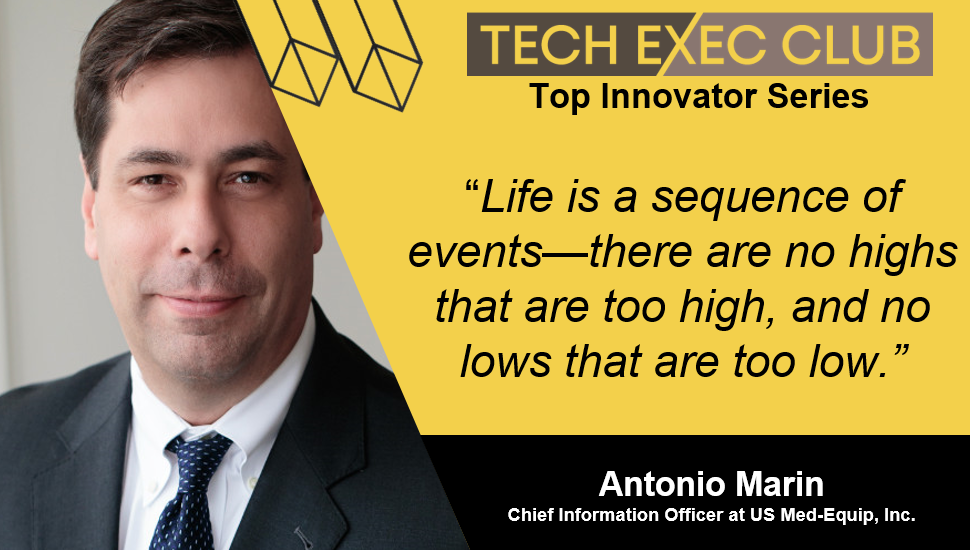In the ever-evolving world of technology and business, leaders who inspire and innovate are the ones who truly make a mark. One such leader is Nick, a retired senior executive who spent over three decades navigating the complexities of corporate leadership, primarily at one of the largest logistics companies in the world. His journey offers profound insights into the essence of effective leadership and the importance of human connection.
Surrounding Yourself with Excellence
Nick’s leadership philosophy centers on surrounding oneself with excellence. He emphasizes that the key to a successful team is not the individual leader but selecting the right team members. “If you surround yourself with greatness, the team will be great,” he asserts. This simple yet powerful message underscores the importance of having A-players who can collaborate effectively.
In Nick’s view, the human factor often prevents tough decisions about team composition. Leaders may feel attached to certain employees despite their performance, but making objective decisions is essential to building a truly great team. This approach ensures that the team is composed of individuals who are not only skilled but also able to work together harmoniously.
Nick’s insight into surrounding oneself with excellence reflects his understanding that leadership is about guiding a capable team rather than being the most knowledgeable person in the room. By assembling a team of intelligent, strong individuals, leaders can achieve more than they could alone. This philosophy has been a cornerstone of Nick’s successful career and is a valuable lesson for aspiring leaders.
The Art of Inspiration
Inspiring others is a critical component of Nick’s leadership style. He believes that people need to be inspired to perform at their best, and this inspiration often comes from the leader’s ability to convey positivity and excitement. “People have to be inspired,” Nick states. He reflects on his role in inspiring teams within and outside his organization, emphasizing the importance of a positive and exciting message.
Nick’s transition from operator to board member and advisor allowed him to reflect on effectively inspiring others. He highlights the need for leaders to be genuinely connected with their teams and communicate a vision that is both motivating and attainable. This connection goes beyond professional interactions; it involves showing genuine interest in people’s lives and acknowledging their contributions.
Nick’s ability to inspire is also tied to his understanding of the power of human connection. He recounts the story of his mother’s supervisor, Gladys Corbett, who profoundly impacted his mother’s career. This story illustrates how even junior leaders can inspire and motivate their teams, shaping their morale and productivity. Nick’s emphasis on inspiration as a leadership tool is a testament to his belief in the power of positive influence.
Learning from Adversity
Nick’s path to leadership was marked by numerous challenges, particularly in his early career. He candidly shares that he lacked good role models, and that many of the leaders he reported to in those early days, “had terrible interpersonal skills“, he recalls. These experiences taught him what not to do, shaping his approach to leadership in a positive direction.
Despite the early lack of positive role models, Nick used these experiences as learning opportunities. He observed the behaviors and attitudes of his superiors, vowing to avoid their mistakes and to lead with empathy and integrity. His determination to learn from adversity contributed significantly to his leadership growth.
Nick’s story is a powerful reminder that adversity can be a valuable teacher. He developed a more compassionate and practical approach by reflecting on negative experiences and using them to inform his leadership style. This ability to turn challenges into learning opportunities is a hallmark of Nick’s leadership and inspires others facing similar obstacles.
Embracing Humanity in Leadership
A key aspect of Nick’s leadership philosophy is maintaining human connections. He believes effective leadership goes beyond managing tasks and responsibilities; it involves treating people with respect and empathy. “It’s important to give people attention, communicate with them, and treat them like humans,” he emphasizes.
Nick’s reflections on his career highlight the significance of small interactions in the workplace. He recounts receiving unexpected thanks from colleagues and external consultants during retirement, underscoring the impact of even brief conversations. In these moments of gratitude, he revealed the lasting impression he left on others through his genuine interactions.
Nick’s emphasis on humanity in leadership is a valuable lesson for all leaders. Leaders can create a supportive and motivating environment by prioritizing human connections and showing empathy. This approach enhances team morale and fosters a culture of mutual respect and collaboration. Nick’s belief in the power of human connection is a testament to his understanding of the true essence of leadership.
The Evolution of Leadership
Nick’s leadership journey reflects an evolution in his approach to leading others. Early in his career, he focused on achieving success through hard work and determination. However, as he advanced, he began to recognize the importance of being a role model and inspiring others. “You’re a role model for others when they look up,” he says, highlighting the responsibility that comes with leadership.
This evolution is evident in Nick’s transition from an authoritarian, results-driven leader to one who values empathy and human connection. He acknowledges that the corporate culture influenced the early approach he was part of, which emphasized toughness and resilience. However, over time, he realized the need for a more balanced approach incorporating discipline and inspiration.
Nick’s journey underscores the importance of continuous learning and adaptation in leadership. He became a more effective and respected leader by evolving his leadership style to include empathy and genuine connections. His story serves as a reminder that leadership is not static; it requires ongoing reflection and growth to meet the changing needs of teams and organizations.
Embracing Excellence and Humanity in Leadership
Nick’s journey offers invaluable lessons for leaders at all stages of their careers. To implement his insights and elevate your leadership, consider the following actionable steps:
1. Surround Yourself with Excellence:
- Recruit Wisely: Focus on hiring individuals who are more intelligent and stronger than you. Look for team members who can collaborate effectively and elevate the collective performance.
- Make Tough Decisions: Be prepared to make objective decisions about team composition. Ensure that each member brings value and contributes to the team’s overall excellence.
- Foster Collaboration: Encourage teamwork where members feel valued and motivated to contribute their best.
2. Inspire Your Team:
- Communicate Positively: Convey excitement, growth, and positivity in all your communications. Inspire your team with a clear and motivating vision.
- Be Genuine: Show genuine interest in your team members’ lives and acknowledge their contributions. Personal connections can significantly boost morale and motivation.
- Lead by Example: Demonstrate the behaviors and attitudes you wish to see in your team. Your actions and demeanor set the tone for the entire organization.
3. Learn from Adversity:
- Reflect on Experiences: Take time to reflect on both positive and negative experiences. Use these reflections to inform your leadership style and avoid repeating mistakes.
- Seek Feedback: Encourage feedback from your team and peers. Use this feedback to grow and adapt your approach.
- Stay Resilient: Embrace challenges as learning opportunities. Maintain a resilient mindset and encourage your team to do the same.
4. Embrace Humanity in Leadership:
- Prioritize Human Connections: Treat every interaction as necessary. Show empathy and respect in all your dealings, both within and outside the organization.
- Be Accessible: Make yourself available to your team. Listen to their concerns and provide support when needed.
- Acknowledge Contributions: Regularly acknowledge and appreciate the efforts and achievements of your team members. This fosters a culture of recognition and respect.
5. Evolve Your Leadership Style:
- Continuous Learning: Commit to ongoing personal and professional development. Stay informed about new leadership trends and adapt your style accordingly.
- Balance Discipline and Inspiration: Strive to be disciplined and inspiring leaders. Maintain high standards while also encouraging and motivating your team.
- Model Positive Behaviors: Remember that you are constantly being watched. Demonstrate behaviors that inspire and motivate others to follow your lead.
Nick’s journey through the corridors of corporate leadership offers a masterclass in the balance of excellence and humanity. His reflections underscore the profound impact of thoughtful, compassionate leadership on individuals and organizations. From his early days of learning what not to do to become a leader who values inspiration and connection, Nick exemplifies the evolution of a truly impactful leader.
His emphasis on surrounding oneself with excellence, inspiring others through genuine connection, learning from adversity, and continuously evolving one’s leadership style serves as a beacon for current and future leaders. Nick’s story is a testament to the power of leading with both the head and the heart, and it provides a compelling roadmap for those aspiring to make a significant and positive impact in their professional journeys.
As we celebrate the insights and achievements of such an exemplary leader, we are reminded of the importance of fostering environments where excellence thrives and human connections are cherished. Nick’s journey is a story of personal success and a guide for all leaders to create workplaces where people are inspired, valued, and motivated to achieve greatness together.
By adopting Nick’s principles, leaders everywhere can strive to inspire their teams, make thoughtful decisions, and leave a lasting positive impact on their organizations and the people within them. Ultimately, authentic leadership is about improving those around you and creating a legacy of excellence and humanity.






